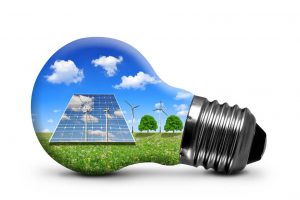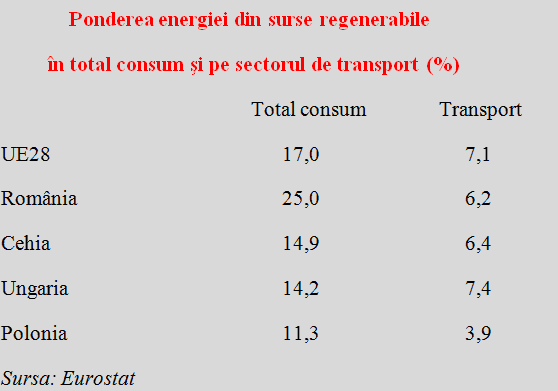 Unlike the vast majority of the economic areas, in which we are at the bottom of the European ranking, Romania succeeded to rank 7th by an important indicator for the competitiveness, sustainable development, and environmental protection: the share of renewable energy in electricity generation.
Unlike the vast majority of the economic areas, in which we are at the bottom of the European ranking, Romania succeeded to rank 7th by an important indicator for the competitiveness, sustainable development, and environmental protection: the share of renewable energy in electricity generation.
With a proportion of 42.7%, according to data centralized by Eurostat for 2016, our country was well above the European average of 29.6% and ahead of developed Western countries such as Germany (32.2%) or France (19.2%).
 Ahead our country and above the 50% threshold were Austria (72.6%), Sweden (64.9%), Portugal (54.1%), Denmark (53.7%) and Latvia (51.3%), followed by Croatia (46.7%). More important, though, is the significant advance compared to reference countries from Central Europe, the Czech Republic (13.6%), Poland (13.4%) and Hungary (only 7.2%).
Ahead our country and above the 50% threshold were Austria (72.6%), Sweden (64.9%), Portugal (54.1%), Denmark (53.7%) and Latvia (51.3%), followed by Croatia (46.7%). More important, though, is the significant advance compared to reference countries from Central Europe, the Czech Republic (13.6%), Poland (13.4%) and Hungary (only 7.2%).
For now, higher costs of production based on new technologies place us at a disadvantage in relation to these three economies, which generate together almost half of our trade deficit from commodity exchanges. On the other hand, though, our lower dependence on classical production sources could favour us in terms of medium and long-term competitiveness.
Finally, a more detailed comparative analysis of the share of renewable energy sources shows that our position maintains better compared to our competitors in Central Europe but things change when referring to the share of this source in the transport area. Where we are positioned below the EU average and just ahead of Poland.
*
- Share of renewable energy sources in total consumption and in the transport area
- Total consumption Transport
- EU28
- Romania
- The Czech Republic
- Hungary
- Poland
*
That shows it is not enough to have a good performance in energy production, you also need to use the results achieved in a key sector for sustainable development in an efficient way for the whole economy.
Especially in the context of the single market and the interconnection of the energy systems.










